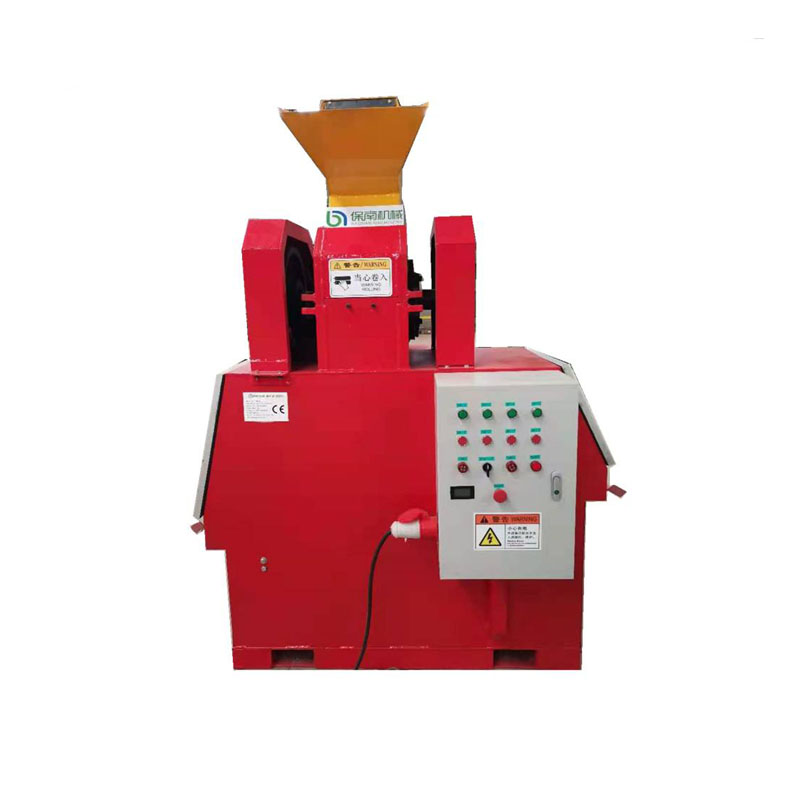

nov . 08, 2024 07:03 Back to list
The Importance of Metal Recycling Shredders in the Circular Economy
In the age of rapid industrialization and urbanization, the need for effective waste management solutions has never been more critical. Among various waste management technologies, metal recycling shredders play a crucial role in promoting sustainability by facilitating the recycling of metals. These machines are not only vital for processing scrap metals but also contribute significantly to the circular economy, where resources are reused and repurposed to minimize waste.
Understanding Metal Recycling Shredders
Metal recycling shredders are heavy-duty machines designed to reduce the size of various types of metals, including ferrous and non-ferrous materials. They achieve this through a series of high-speed rotating blades that cut, crush, and shred metal waste into smaller fragments. The reduced size of the shredded metal allows for easier handling, sorting, and transportation, making it a critical step in the recycling process.
These shredders can process a wide variety of materials, including obsolete vehicles, appliances, construction debris, and electronic waste. By breaking down these materials, shredders make it easier for downstream processes, such as smelting and refining, to recover valuable metals.
Environmental Benefits
One of the most significant advantages of metal recycling shredders is their positive impact on the environment. Traditional mining practices for extracting metals are resource-intensive and environmentally destructive, leading to deforestation, habitat destruction, and pollution. In contrast, recycling metals reduces the demand for new raw materials, conserving energy and minimizing environmental degradation.
Recycling metals through shredding can save up to 74% of the energy required to produce new metals from ore. Additionally, recycling reduces greenhouse gas emissions, contributing to climate change mitigation efforts. By utilizing metal recycling shredders, industries can significantly lower their carbon footprint while participating in sustainable production practices.
Economic Advantages
The economic benefits of metal recycling shredders are equally compelling. By recycling metals, businesses can reduce their material costs, turning what would be waste into a valuable resource. The scrap metal industry is a significant contributor to local and national economies, providing jobs and generating revenue.

Moreover, manufacturers who incorporate recycled metal into their production processes can often produce goods at a lower cost. This competitive advantage makes it possible for businesses to offer more affordable products while maintaining quality standards, ultimately benefiting consumers.
Innovations in Shredding Technology
As the demand for efficient recycling solutions continues to grow, innovations in shredding technology are emerging. Modern metal shredders are equipped with advanced features such as state-of-the-art sensors, automation, and artificial intelligence, allowing for increased efficiency and effectiveness. These technological advancements enable operators to monitor the shredding process in real-time, optimize performance, and ensure a higher recovery rate of materials.
Additionally, some shredders are designed to be environmentally friendly, using less energy and producing lower emissions than older models. This aligns with the increasing emphasis on sustainable practices in various industries and reflects a growing recognition of the value of eco-conscious technologies.
The Role of Shredders in Community Recycling Initiatives
Community recycling initiatives often rely on the availability of metal recycling shredders to create a robust circular economy at the local level. By providing access to shredders, communities can establish effective metal recycling programs that encourage residents and businesses to recycle their metal waste.
These programs not only help keep metals out of landfills but also educate the public on the importance of recycling and the benefits of reducing waste. By engaging communities in recycling efforts, shredders help foster a culture of sustainability and responsibility regarding resource use.
Conclusion
In summary, metal recycling shredders are an essential component of modern waste management systems. Their ability to process and recycle metals not only benefits the environment but also provides substantial economic advantages. As technology continues to advance, these shredders will play an increasingly vital role in promoting a circular economy—one where resources are maximized, and waste is minimized. Investing in metal recycling shredders is not just an investment in equipment; it is an investment in a sustainable future for our planet.
Latest news
Troubleshooting Common Eddy Separator Problems
NewsJul.04,2025
The Role of Metal Recycling Plants in Circular Economy
NewsJul.04,2025
The Impact of Recycling Line Pickers on Waste Management Costs
NewsJul.04,2025
Safety Features Every Metal Shredder Should Have
NewsJul.04,2025
How Industrial Shredders Improve Waste Management Systems
NewsJul.04,2025
How Cable Granulators Contribute to Sustainable Recycling
NewsJul.04,2025